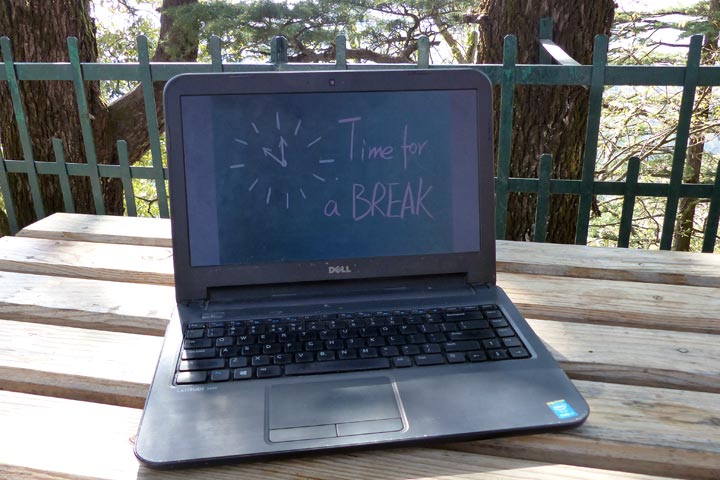
29 Mar Screen break
Principal Dr Jonathan Long on the risks of digital addiction and how to avoid it.
I’ve just finished reading Adam Alter’s fascinating new book, ‘Irresistible: The Rise of Addictive Technology’. Adam Alter is a social psychologist and professor at the Stern School of Business in New York. He was first inspired to write the book when he heard about a school in the Bay Area of San Francisco which bans just about all technology — and that 75 percent of the parents are executives in the technology industry, including the chief technology officer of eBay and employees of Google, Apple, Yahoo and Hewlett-Packard.
So, what do these parents know that makes them cautious about technology? Adam Alter’s conclusion is clear: many of us – young people and adults alike – risk becoming, literally, addicted to technology.
It is staggering to consider that over a lifetime, today’s teenagers will probably spend 11 years looking at their phone screens!
This isn’t the chemical addictions we associate with cigarettes or cocaine. This is what is known as a ‘behavioural addiction’ – and there is plenty of research evidence to illustrate its profound impact on our lives. For example, studies are now showing that the pervasive use of computers in the classroom is having a negative impact on key aspects of children’s learning. For instance, children’s attention spans have dropped worryingly in recent years, there is evidence of a reduced ability to persevere in the face of challenging tasks and even an inability to recognise emotional cues. We are, as the Pew Internet Project study concludes, creating “an easily distracted generation”.
An inter-generational issue
With stories of teenagers opening social media applications like Snapchat more than 20 times a day and with 50% of adults surveyed saying they check their emails through the night, this is a problem which spans the generation gap. Most office emails, according to Adam Alter, remain unread for only six seconds! It is staggering to consider that over a lifetime, today’s teenagers will probably spend 11 years looking at their phone screens!
His remedy includes... ensuring there are times of the day when its inaccessible, spending time in natural environments and making sure there are plenty of opportunities for good old fashioned conversations.
What is now clear is that the smartphone and the laptop can trigger the release of dopamine in the brain – particularly when games and social media are used. This is a chemical which produces short-term pleasure. But that’s not the full story – we build tolerance to dopamine and need increasing doses to maintain the same pleasure levels. In other words, as Adam Alter claims, humans have a biological predisposition to getting hooked on technology.
A real-life solution
His remedy includes some of the steps we’re already taking here. They include being more aware of how technology invades our lives, ensuring there are times of the day when its inaccessible, spending time in natural environments and making sure there are plenty of opportunities for good old fashioned conversations.
Adam Alter’s curiosity was ignited by the Waldorf School of the Peninsula in San Francisco. I’ve found much in their approach to technology which inspires and encourages me. Their approach is not, in fact, a ‘no-technology’ approach – they prefer to call it a ‘slow-technology’ approach. For example, recognising the developmental needs of children and not unleashing inappropriate computer technology on them too soon – they suggest absolutely nothing until around 7th Grade. They also make the point that technological literacy can be gained very quickly when children are older and know how to use it as a tool. As one parent (who happens to be a Google executive!) at the school said, “At Google and all these places, we make technology as brain-dead easy to use as possible. It’s super easy. It’s like learning to use toothpaste. There’s no reason why kids can’t figure it out when they get older!”
Dr Jonathan Long, Principal






No Comments